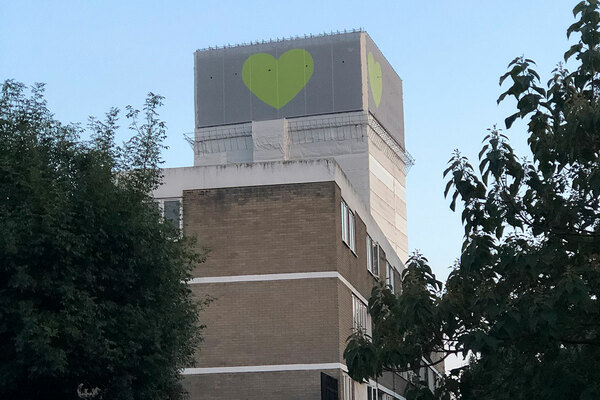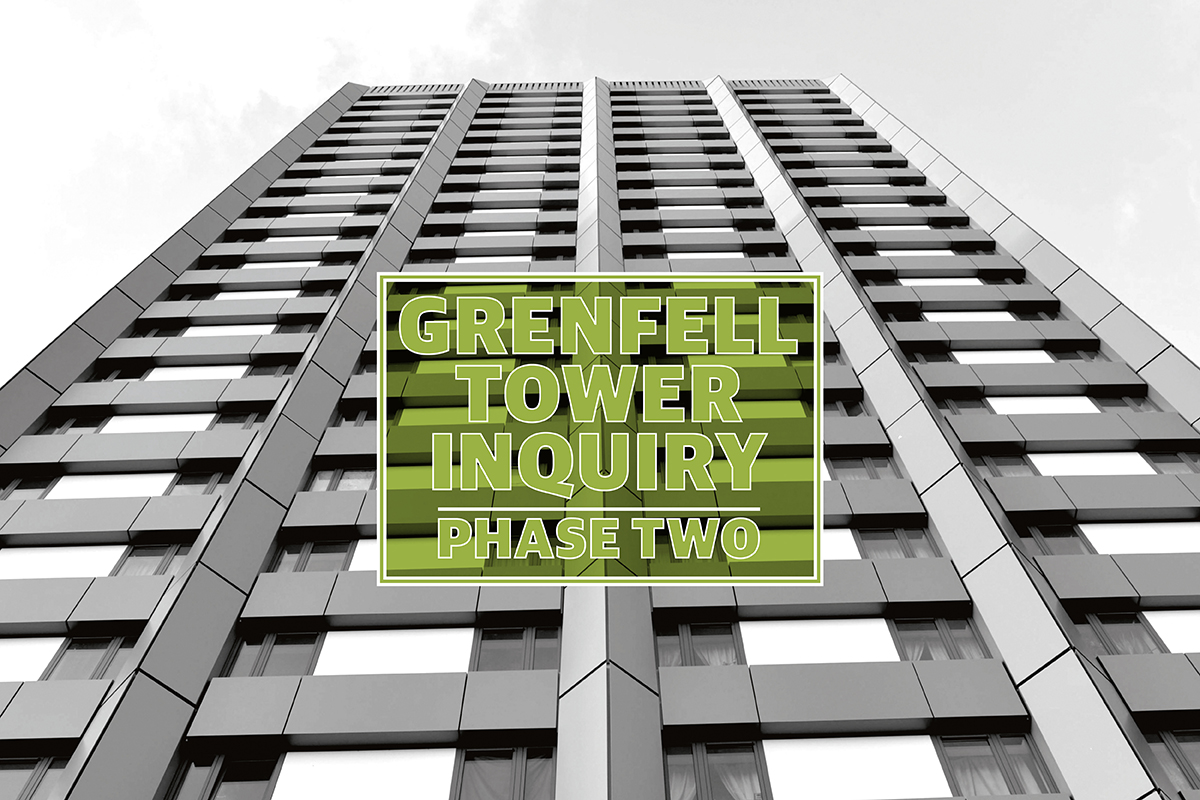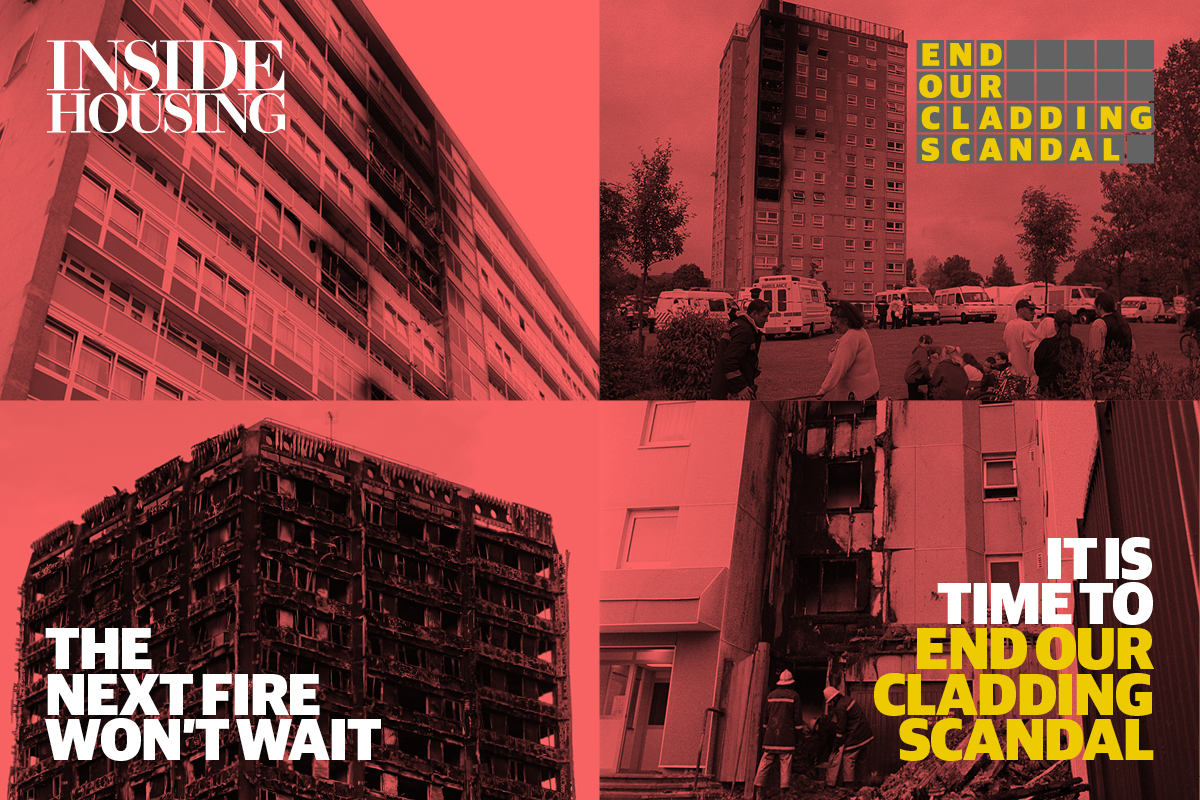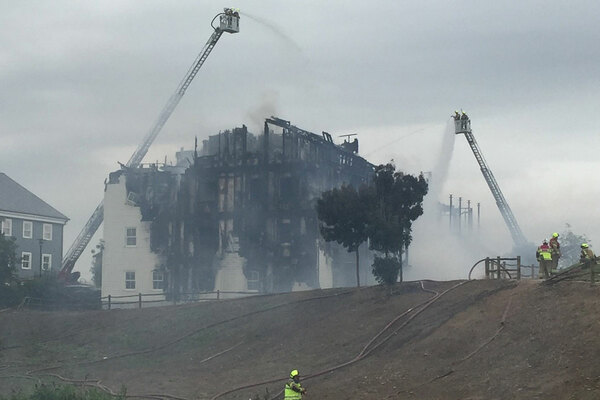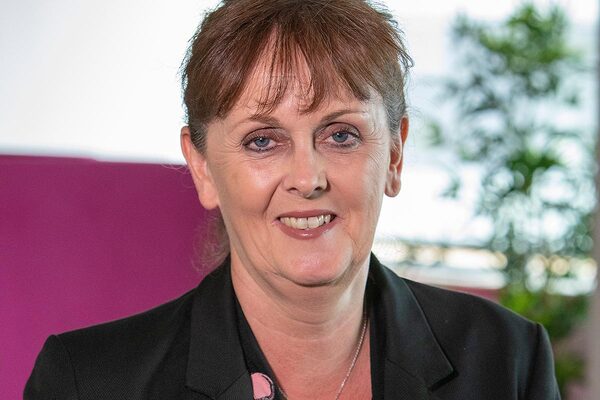Post-Grenfell fire safety work ‘will never complete’ without change of approach, experts warn
Fire safety work required to make thousands of buildings around the country safe will never be completed without a change in approach from the government, experts have warned.
As Inside Housing relaunched its End Our Cladding Scandal campaign with a 10-point plan to fix the mounting crisis, industry figures described the current situation as a “complete and utter mess” and warned just the removal of cladding from high rises would take at least 12-and-a-half years.
This is before a range of other defects and medium-rise buildings are taken into account – meaning the current approach will never result in the remediation of buildings.
The campaign calls on the government to lead an “urgent, national effort” to take control of the work, including the prioritisation of the buildings most at risk.
There are currently 291 tall buildings with aluminium composite material (ACM) cladding which require remediation and a reported 2,957 have registered for removal of cladding of other types.
In addition, tens of thousands of medium rises require cladding remediation and buildings need a host of other internal and external defects remedied, from fire doors to the removal of combustible balconies.
Dorian Lawrence, managing director at consultancy FRC, said that operating at full capacity the industry was unlikely to be able to complete more than 200 cladding remediation jobs a year. There are 5,000 qualified rainscreen cladders in the country and each job can require up to 30, he explained.
“For the current jobs in hand, over 18m, that’s 12-and-a-half years’ work,” he said. “You have got the commercial sector to do, public sector, schools, hospitals – this is not just the residential sector. And once you consider buildings above 11m – well, it goes on for much longer than I’ll be around.”
He said that the picture could get worse, because many quality workers from the EU were leaving the UK due to Brexit.
He added that without further government funding, work would simply not progress. “The biggest thing is funding. Unless it’s funded by government the jobs don’t go ahead, it doesn’t happen,” he said. “There just isn’t the funding there from leaseholders.”
The government has offered £1bn of funding for the blocks with non-ACM cladding – a fund which is likely to cover between 450 and 600 buildings.
Mr Lawrence explained that the current rules on this funding require the plans for removal to be completed by 31 December, and candidates will not be invited to start working on their bids for another fortnight. With a break around Christmas, that will leave just nine weeks to plan the work.
“I’ve got one building with 25 elevations and eight types of cladding,” he said. “You need to complete drawings for the job, put together a specification and then go out to tender. And if you miss the deadline, you have to pay back the upfront funding which pays for putting the bid together. It isn’t looking very attractive.”
He added that the government should prioritise the work to “look at those that are really high risk first”.
John Powell, managing director of Frankham RMS, added: “The whole thing is a complete and utter mess. Everyone keeps telling government you need to do something about this but they won’t. We can’t continue on a situation of battling through the law courts which will take years. They need to deal with the risk and then sort out the liability afterwards.
“There will be buildings where this just never happens if the government doesn’t take action on it, without a doubt. It’s a mess but the government do have the ability to fix it by showing some common sense.”
Mr Powell added that his firm had stopped signing the EWS1 forms required to confirm the compliance of a building’s facade, after warnings from insurers that the firm could face “unlimited liability” as a result.
“We are not signing EWS1 forms at all, and that is our position. We just can’t run the risk of signing these forms on the basis of having looked at 0.1% of the facade,” he said.
Dr Jonathan Evans, chief executive of building envelope firm Ash & Lacy, said: “The Ministry of Housing, Communities and Local Government [MHCLG] have compounded the scale and intensity of the cladding crisis by dragging in thousands of buildings that aren’t even unsafe, which distracts from sorting genuinely dangerous ones.
“There needs to be an immediate change of approach under new leadership not burdened by responsibility for the past and therefore liberated to make fast, decisive changes. People can deal with this much better if they have some optimism it is finally being sorted.”
An MHCLG spokesperson said: “Our priority is making homes safer, faster – which is why we’re providing £1.6bn to speed up the removal of unsafe cladding.
“We are seeing progress to make buildings safer - with work complete or under way in more than 70% of buildings with ACM cladding, rising to above 90% in the social housing sector.
“Our remediation fund is not the only means of paying for work to be done and we expect building owners to ensure their buildings are safe.”
10 steps to End Our Cladding Scandal
Based on the recommendations of the Housing, Communities and Local Government Select Committee and backed by a range of sector bodies and MPs from across the political spectrum, these are Inside Housing’s 10 steps to End Our Cladding Scandal:
- The government must lead an urgent national effort to remove all dangerous cladding from buildings by June 2022.
- The Building Safety Fund must cover all buildings, regardless of height, and a range of internal and external fire safety defects, not just cladding.
- The government should provide the money up front and then seek to recover it from any responsible parties or via a temporary levy on development.
- Social housing providers must have full and equal access to the fund.
- The government must compel building owners or managers to be honest with residents about fire safety defects.
- The government should cover the cost of interim safety measures.
- The government should act as an insurer of last resort and underwrite insurance where premiums have soared.
- A fairer, faster process is needed to replace the EWS form and funding is necessary to ensure all buildings requiring a form are surveyed within 12 months.
- Mental health support must be offered to affected residents.
- Protecting residents from historic and future costs must be a key commitment of new building safety legislation.
End Our Cladding Scandal: campaign backers
Organisations:
- Grenfell United
- Resident cladding action groups: UK Cladding Action Group, Manchester Cladiators, Leeds Cladding Scandal, Birmingham Leaseholder Action Group, London Cladding Action Group, Liverpool Cladiators, One Housing Action Group, Homeowners of L&Q, Richmond House Residents and others
- A collective of lawyers representing Grenfell Tower families at the public inquiry
- The Sunday Times
- Shelter
- Fire Brigades Union
- Royal Institute of British Architects
- Chartered Institute of Housing
- National Housing Federation
- Unison
- National Leasehold Campaign
- Leasehold Knowledge Partnership
- Engage Liverpool
- Federation of Private Residents Associations
- Institute of Residential Property Management
Individuals and experts:
- TV presenter Kevin McCloud
- TV presenter Phil Spencer
- Architect George Clarke
- Actor and comedian Kathy Burke
- Actor Carey Mulligan
- Singer/songwriter Marcus Mumford
- Hip hop artist and campaigner Lowkey
- West Midlands Police and Crime Commissioner, Simon Foster
- Actor Ross Mullan (Game of Thrones)
- Leilani Farha, dormer UN special rapporteur for housing
- Jonathan Evans, chief executive of Ash & Lacy
- Building Safety Register co-founder Matt Hodges-Long
- Professor Sue Bright
- Executive coach Gill Kernick
- Safety consultant Stephen MacKenzie
- Safety consultant Phil Murphy
- Architect Francis Maria Peacock
- Chris Blythe OBE, former chief executive of the CIOB
- Solicitor Giles Peaker
Politicians:
- Andy Street, metro mayor of West Midlands (Conservative)
- Sadiq Khan, mayor of London (Labour)
- Andy Burnham, mayor of Greater Manchester (Labour)
- Steve Rotheram, metro mayor of Liverpool City Region (Labour)
- Mike Amesbury MP, shadow housing minister (Labour)
- Matthew Pennycook MP (Labour)
- Kim Johnson MP (Labour)
- Shabana Mahmood MP (Labour)
- Liam Byrne MP (Labour)
- Ian Byrne MP (Labour)
- Abena Oppong-Asare MP (Labour)
- Margaret Hodge MP (Labour)
- Ruth Cadbury MP (Labour)
- Apsana Begum MP (Labour)
- Rushanara Ali MP (Labour)
- Sam Tarry MP (Labour)
- Mohammed Yasin MP (Labour)
- Lucy Powell MP (Labour)
- Rebecca Long-Bailey MP (Labour)
- Justin Madders MP (Labour)
- Florence Eshalomi MP (Labour)
- Sam Terry MP (Labour)
- Jeff Smith MP (Labour)
- Mohammed Yasin MP (Labour)
- Meg Hillier MP (Labour)
- Bell Ribeiro-Addy MP (Labour)
- Feryal Clark MP (Labour)
- John Cruddas MP (Labour)
- Virendra Sharma MP (Labour)
- Graham Stringer MP (Labour)
- Diane Abbott MP (Labour)
- Andrew Mitchell MP (Conservative)
- Sir Peter Bottomley MP (Conservative)
- Bob Neil MP (Conservative)
- Bob Blackman MP (Conservative)
- Anne Marie Morris MP (Conservative)
- Stephen McPartland MP (Conservative)
- Matthew Offord MP (Conservative)
- Kevin Hollinrake MP (Conservative)
- Stephen Hammond MP (Conservative)
- Daisy Cooper MP (Liberal Democrat)
- Christine Jardine MP (Liberal Democrat)
- Sarah Olney MP (Liberal Democrat)
- Jamie Stone MP (Liberal Democrat)
- Caroline Lucas MP (Green)
Lord Young of Cookham (Conservative)
- Lord Bourne of Aberystwyth (Conservative)
- Lord Gary Porter of Spalding (Conservative, former chair of the Local Government Association)
- Lord Shipley OBE (Liberal Democrat)
- Lord Stunnell OBE (Liberal Democrat)
- Baroness Jones of Moulsecoomb (Green)
- Baroness Finlay of Llandaff (Crossbench)
- Cllr Sir Richard Leese, leader of Manchester Council (Labour)
- Cllr Ian Ward, leader of Birmingham Council (Labour)
- Philip Glanville, mayor of Hackney (Labour)
- Paul Dennett, mayor of Salford (Labour)
- Sian Berry AM (Green)
- Caroline Pidgeon AM (Liberal Democrat)
- Tom Copley AM, deputy mayor for housing (Labour)
- Leonie Cooper AM (Labour)
- Murad Qureshi AM (Labour)
- Andrew Dismore AM (Labour)
- Neil McEvoy MS (Labour)
- Cllr Jonathan Bartley (Green, co-leader)
- Cllr Douglas Johnson (Green)
- Cllr Suzanne Richards (Labour)
- Cllr Liz Clements (Labour)
- Cllr Maria Toolan (Labour)
- Cllr Christine Banks (Labour)
- Cllr Nick Small (Labour)
- Cllr Geoff Barraclough (Labour)
- Cllr Paul Dimoldenberg (Labour)
- Cllr Martin Whelton (Labour)
- Cllr Jon Connor-Lyons (Labour)
- Cllr Sam Wheeler (Labour)
- Cllr Marcus Johns (Labour)
- Cllr Adam Hug (Labour)
- Cllr Tony Belton (Labour)
- Cllr Zena Brabazon (Labour)
- Cllr Sara Conway (Labour)
- Cllr Mary Daly (Labour)
- Cllr Thomas Stephens (Labour)
- Cllr Krupesh Hirani (Labour)
- Cllr Sarah Bogle (Labour)
- Cllr Darren Paffey (Labour)
- Cllr Joan Davies (Labour)
- Cllr Sem Moema (Labour)
- Cllr Shama Tatler (Labour)
- Cllr Johnson Situ (Labour)
- Cllr Anne Clarke (Labour)
- Cllr Leo Pollak (Labour)
- Cllr James Roberts (Vice Chair of Merseyside Fire and Rescue Authority) (Labour)
- Cllr Annette Wright (Labour)
- Cllr Ken Wood (Conservative)
- Cllr Meirion Jenkins (Conservative)
- Cllr Robert Alden (Conservative)
- Cllr Peter Golds (Conservative)
- Cllr Michael Rutherford (Conservative)
- Cllr Edward Gretton (Conservative)
- Cllr Anton Georgiou (Liberal Democrat)
- Cllr Jayne McCoy (Liberal Democrat)
- Cllr Rabina Khan (Liberal Democrat)
- Cllr Ruth Dombey (Liberal Democrat)
- Cllr Anthony Fairclough (Liberal Democrat)
- Cllr Hina Bokhari (Liberal Democrat)
- Cllr Jenny Batt (Liberal Democrat)
- Cllr Ben Andrew (Liberal Democrat)
- Cllr Andrew Wood (independent, former Conservative)
